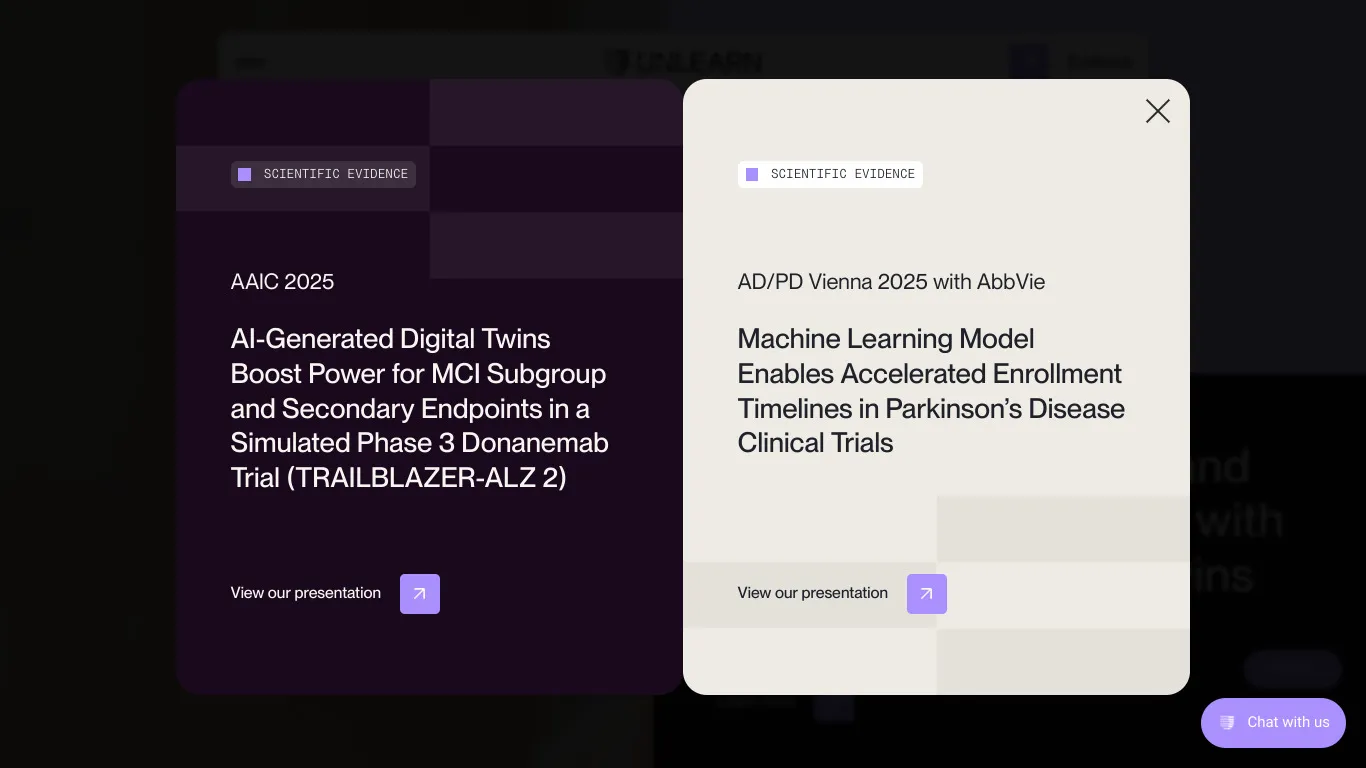


This AI enables generating digital twins for participants in clinical trials, thereby providing a detailed prediction of their future health status. These predictive models are trained with meaningful patient data from prior studies. The use of digital twins in TwinRCTs helps to improve trial power without increasing the number of participants, in accordance with FDA and EMA guidelines. This also reduces the time required to achieve full enrollment in advanced-phase studies and increases the likelihood that participants receive the experimental treatment, thanks to the reduction in the size of the control groups. By predicting the outcome of each participant in the control group, regardless of their actual allocation in the trial, Unlearn strengthens researchers' ability to make confident decisions early in key trials. Its effectiveness and adaptability make this tool a valuable resource for all professionals engaged in clinical research on diseases such as Alzheimer's, amyotrophic lateral sclerosis, and many others.
Digital patient models enable accelerating the enrollment process in late-stage studies by requiring fewer patients to achieve the same efficacy. This optimizes resources and reduces timelines, thus offering a significant advantage for healthcare professionals engaged in clinical research.
The use of digital twins increases the power of early clinical trials without increasing the number of participants. This notably improves the accuracy of observations of treatment effects, enabling more informed and earlier decisions in the development of new therapies.
By reducing the size of the control groups, TwinRCTs offer participants a greater likelihood of receiving the experimental treatment. This approach not only increases the study's attractiveness for potential participants but also ensures an ethical approach by limiting exposure to ineffective treatments.







